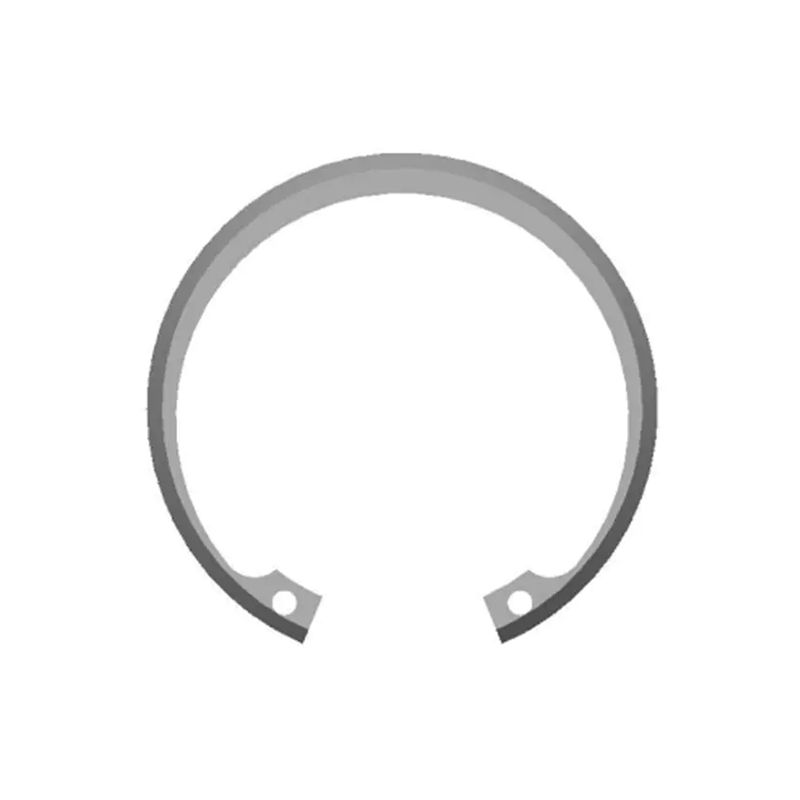When it comes to fastening solutions, few components are as versatile and reliable as Belleville spring washers. These conical-shaped marvels are engineered to provide controlled tension, resist loosening under vibration, and distribute loads effectively. However, their performance isn’t just about design—it’s also heavily influenced by the materials used in their construction. Whether you’re working on an automotive assembly, aerospace application, or industrial machinery, understanding how different materials affect the fatigue life and load-bearing capacity of these washers is critical for achieving optimal results.
At the heart of Belleville washer functionality lies their ability to maintain consistent preload over time. This is where material selection becomes paramount. Stainless steel, for instance, is a popular choice due to its excellent corrosion resistance, making it ideal for marine environments or outdoor applications where exposure to moisture and chemicals is inevitable. But beyond its rust-resistant properties, stainless steel also offers impressive mechanical strength, which translates into a longer fatigue life. Fatigue life refers to the number of cycles a Belleville washer can endure before its performance begins to degrade. For high-stress applications, such as those found in heavy machinery or vibrating systems, choosing a material with superior fatigue resistance ensures that your fasteners remain secure even under relentless use.
On the other hand, carbon steel is often favored in industrial settings where maximum load-bearing capacity is required. Carbon steel Belleville washers are incredibly robust, capable of handling extreme pressures without deforming. However, they lack the corrosion resistance of stainless steel, which means they may require additional treatments like zinc plating or powder coating if used in harsh environments. Engineers must weigh the trade-offs between durability and environmental resilience when selecting materials, especially in industries like construction or oil and gas, where both strength and longevity are non-negotiable.

Aluminum Belleville washers, while not as common, have their own niche applications. Their lightweight nature makes them particularly appealing in aerospace engineering, where every gram counts. Despite being softer than steel, aluminum variants can still deliver reliable performance in low-load scenarios. However, their susceptibility to wear and reduced fatigue life compared to steel options means they’re best suited for static or low-vibration environments. Plastic washers, though less traditional, are another alternative for specialized uses, such as electronics or food processing equipment, where non-conductivity or chemical inertness is essential. While these materials don’t offer the same spring-like qualities as metal Belleville washers, they provide unique benefits that align with specific project requirements.
One of the most intriguing aspects of material science in relation to Belleville spring washers is how cyclic loading impacts their performance. Cyclic loading occurs when a washer is repeatedly compressed and released, such as in vibrating machinery or thermal expansion scenarios. Over time, this stress can lead to material fatigue, reducing the washer’s ability to maintain preload. To combat this, manufacturers often employ advanced heat treatments or alloy compositions to enhance the material’s resilience. For example, high-performance alloys like Inconel or titanium may be used in extreme conditions, offering unparalleled strength-to-weight ratios and resistance to thermal degradation. These premium materials ensure that Belleville washers continue to perform reliably, even in the harshest operating environments.
Ultimately, the key takeaway is that no single material is universally "best" for all applications. The decision hinges on the specific demands of your project—whether it’s the need for corrosion resistance, maximum load capacity, or weight reduction. By carefully considering the interplay between material properties and operational requirements, engineers can maximize the efficiency and lifespan of their fastening systems. And let’s not forget: the right choice of material doesn’t just enhance performance—it also contributes to cost savings by minimizing maintenance and replacement needs.
Belleville spring washers are more than just simple components; they’re precision-engineered tools whose effectiveness depends significantly on material selection. From stainless steel’s corrosion-fighting prowess to carbon steel’s brute strength, each material brings something unique to the table. So, the next time you’re designing a system that relies on these ingenious washers, take a moment to think about the environment, load demands, and long-term goals of your project. After all, the right material choice could mean the difference between a system that thrives and one that falters under pressure.

















